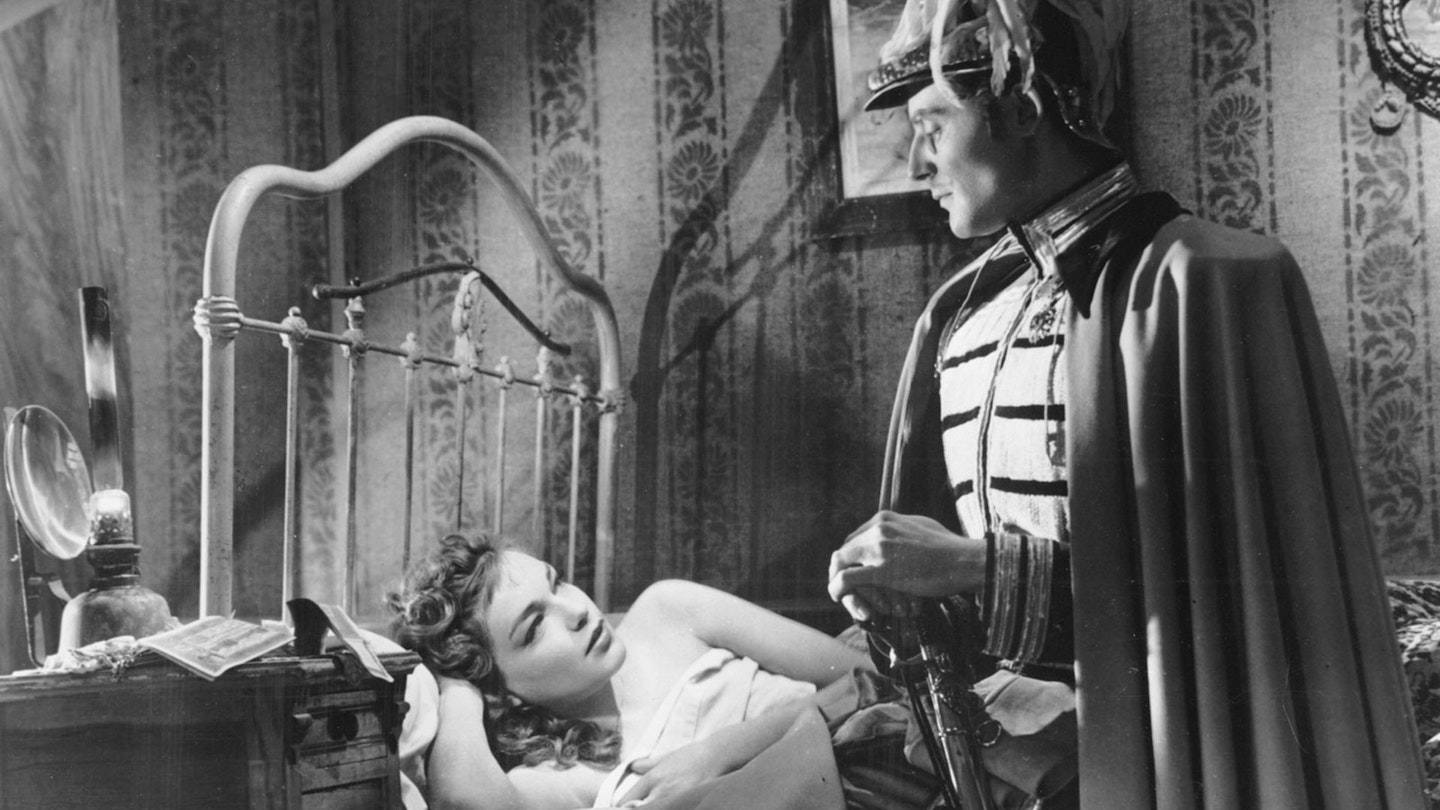Arthur Schnitzler’s play is so perfectly constructed it’s a surprisingly hard adapt to the movies. Max Ophuls takes a daring approach by having Anton Walbrook as a ringmaster who even sings a song to keep the carousel turning. He strides into a stylised set representing Vienna in 1900, puts on period clothing, walks past film equipment and moves into a more ‘realistic’ but equally stagebound set, where he encounters the whore who starts and ends Schnitzler’s round of liasions and seems to set the whole plot in motion like a clockwork toy.
Ophuls and Schnitzler are a natural match; here, with a French cast (Gerard Philippe, Simone Simon, Jean-Louis Barrault) as the Viennese characters, he manages the charm, cynicism and knowingness perfectly, never despising lecherous or self-deluded characters as the chain carries on with each participant playing different roles to play up to their current partners.
Much of Schnitzler’s dialogue is retained, and played expertly – especially good is the momentary lapse (into impotence) of the young lover (Daniel Gelin) with the married woman (Danielle Darrieux), and the wife’s wry exchange with her husband about his own wild youth and the dreadful sort of wives who take lovers.
Walbrook, a clear substitute for the director, carries off his role as deity and nobody perfectly, and the film’s fussy period look explodes with touches of the fantastical to emphasise the artifice of it all. These people are, in one sense, tin toys, though there’s also a great heart in the depiction of them all as foolish but somehow sympathetic, no matter how mean their behaviour might be, as this round is not only of seductions but punishments.
